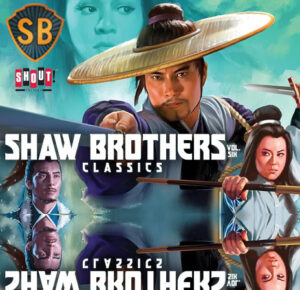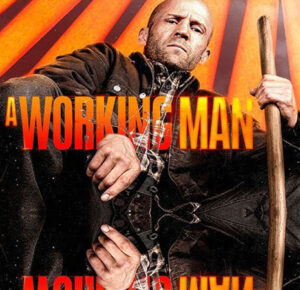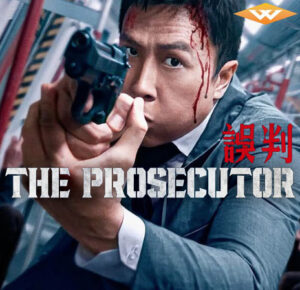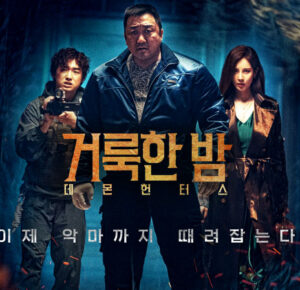
Battle Royale & Battle Royale II: The Complete 4-Disc Collection Blu-ray & DVD (Anchor Bay)
We’re totally on time and kicking ass with this week’s new releases list. Get ready for “Battle Royale,” Bruce’sploitation, and more serial killers than you can shake a stick at. Are you ready? Here are your Blu-ray and DVD new releases for the week of 3/20/12:
ASIAN CINEMA
Battle Royale: The Complete Collection (Blu-ray/DVD) – the director’s cuts and theatrical cuts of both “Battle Royale” and “Battle Royale II,” in one Blu-ray set from Anchor Bay. Hot damn!
Battle Royale (Blu-ray/DVD) – don’t want to bother with the inferior “Battle Royale II”? Stick with the original 2000 modern classic on Blu-ray or DVD
Private Eye (DVD) – Pathfinder Pictures presents this 2009 Korean detective thriller set in the 1900’s that’s marketed as Korea’s answer to “Sherlock Holmes”
Secret Pleasures: Four Asian Films about Love, Longing and Fishhooks (DVD) – in this four DVD set, you receive: “Electric Shadows,” “The Isle,” “Ghosted,” and “The Personals,” courtesy of First Run Features
Lost on the Island (AKA Mapado 2) (DVD) – an off-the-wall 2007 Korean comedy that’s been labelled “cruel and twisted”
Red Persimmons (DVD) – a 2004 poetic Japanese documentary about the packaging of persimmons in a tiny Japanese village, it wasn’t completed until after the director’s passing
The Dragon Lives Again (DVD) – hey, what do you know, a Bruce’sploitation flick! This 1977 kung fu movie, dubbed into English for DVD, features a Bruce Lee clone fighting off the undead and other hellish warriors
TELEVISION
Scent of a Woman (DVD) – the popular Korean TV romance is now on DVD, featuring the stars of “My Lovely Sam-soon” and “My Girl”
FOREIGN CINEMA
Letter Never Sent (Blu-ray/DVD) – the Criterion Collection presents this sweeping 1959 Russian epic from director Mikhail Kalatozov
Gainsbourg (Blu-ray/DVD) – a 2012 biopicture about the legendary French singer, Serge Gainsbourg (played by Eric Elmosnino in the film)
Sidewalls (DVD) – a 2011 Argentinian romantic comedy that mixes mediums (film, photography, art) and pays homage to the city of Buenos Aires
Little Girl (AKA “La Pivellina”) (DVD) – a new brand of Italian neorealism (neo-neorealism?) is explored in this 2009 film about a little girl abandoned and adopted by a circus troupe
Amor En Transito (DVD) – no product description for this 2010 Spanish-language film but it looks like a thriller and the cover promises “Be careful what you wish for”
What You Don’t See (DVD) – another DVD from Vanguard Films with no product description, but the cover promises that this 2009 German-language film is an “atmospheric chiller”
MAINSTREAM
The Girl With the Dragon Tattoo (Blu-ray/DVD) – director David Fincher re-imagines the bestselling Swedish novel with his own brand of unsettling dread. Starring Daniel Craig and Rooney Mara
Tinker Tailor Soldier Spy (Blu-ray/DVD) – Gary Oldman stars in this critically acclaimed 2011 espionage drama from the director of “Let the Right One In”
Carnage (Blu-ray/DVD) – Roman Polanski’s 2011 film about parents who are just as misbehaved as their children features an all-star cast including Kate Winslet and Christopher Waltz
A Lonely Place to Die (Blu-ray/DVD) – IFC Midnight presents this 2011 thriller about a group of mountain climbers who decide to rescue a little girl they find starving and alone, only to become the target of her kidnappers
CULT
Roadracers (Blu-ray/DVD) – for the first time on home formats! Back in 1994, “Desperado” filmmaker Robert Rodriguez made this Showtime movie about rebellious young racers with David Arquette and Salma Hayek
Puppet on a Chain (DVD) – an obscure 1971 thriller that posits itself as a James Bond-style adventure
Frauleins In Uniform (DVD) – a 1973 Nazi’sploitation style flick, on DVD from Cheezy
This is Not a Movie (Blu-ray/DVD) – Edward Furlong stars in this 2011 self-aware stab at pop culture and the end of the world. Featuring music by Slash of Guns ‘N Roses fame
HORROR
Strip Nude For Your Killer (Blu-ray) – your friends at Blue Underground present this 1975 Italian horror film starring genre stalwart Edwige Fenech, now in hi-def
The Hills Have Eyes 2 (Remastered Edition) (Blu-ray) – Redemption Films offers Wes Craven’s 1985 slasher sequel on remastered Blu-ray
Splintered (Blu-ray + DVD combo/DVD) – this 2010 UK creature feature has earned kudos over there for its tale of a mythical Wales beast come to life
Classic Splatter Pack (The Drive-in Massacre/The Driller Killer) (DVD) – CFS Releasing offers two nasty little 70’s slashers together on DVD
Satan’s Slave (Uncut Edition) (DVD) – Katrina’s Nightmare Theater presents the uncut version of this 1976 horror flick
Funeral Home (DVD) – a 1981 horror film in the classic Eighties slasher mold
Jarring (DVD) – a 2009 indie serial killer movie from Vanguard Cinema
Claustrofobia (DVD) – Seminal Films provides this 2011 paranoid thriller set in a young woman’s apartment
Won Ton Baby (DVD) – when a prostitute gives up her baby and sets her sights on a cleaner lifestyle, she has no idea her offspring will become a parasitic killer in this 2010 creature flick
The Ritual (DVD) – in this 2010 ‘found footage’-style horror film, a fugitive serial killer grooms a young hustler to be his successor
The Museum of Wonders (DVD) – a brutal revenge plot unfolds when a circus dwarf realizes his wife has only married him to steal his money in this 2010 horror flick
Interested in any of these movies? If so, we hope that you’ll consider ordering from our affiliate to help support this site. Thank you!























Be the 1st to Comment